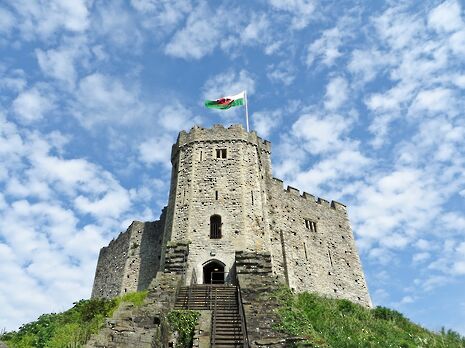Coming to Cambridge has strengthened my solidarity with my Welsh identity
Maia Wyn Davies highlights the hypocrisy of Brits who condemn the racist tendencies of the Leave campaign while dismissing national identities such as that of the Welsh

Being Welsh is categorically the Best Thing Ever™. As Wilfred Wilson wrote, ‘To be born Welsh is to be born privileged, / not with a silver spoon in your mouth, / but music in your blood / and poetry in your soul.’ Raised on a diet of choral singing, rugby, and the best anthem of all time, it’s not difficult to understand why I’ll be lovingly shoving daffodils in everyone’s faces on St David’s Day, and why I tell everyone I meet that I, did you know, am Welsh.
Being Welsh at Cambridge, however, is rather difficult.
“Where home was once what I was excited to leave, it is now the thing to which I hold fast when Cambridge works to swallow me whole”
Coming to an English university, I knew that this was likely. I expected that I would miss speaking Welsh – my first language, the one in which I was raised, educated, and speak to my friends. I expected that I’d miss living in Cardiff, a stone’s throw away from a pretty impressive castle and the Millennium (never the Principality) Stadium. I also knew that I’d face a few sheep-centred jokes and a healthy amount of Gavin and Stacey references from the English – who can blame them? Nessa is a national treasure. These concerns, I suspect, mirror those of any student leaving their country for university.
What I did not expect, however, was the singularly hostile and derisive attitude towards the Welsh identity held by many students. I am frequently surrounded by otherwise liberal students that scoff when I state that I’m ‘Welsh, not British’ as they seek to disprove that my identity is at all worthy of distinction from Englishness, that identity preposterously seen as synonymous with Britishness. This is only exacerbated by the vast outnumbering of Welsh students in Cambridge: of the offers made in the 2016 undergraduate intake, only 1.6% went to Welsh students, while 18% went to Greater London alone. I sit in stunned silence as I hear students that disparage Brexit and the xenophobic rhetoric of the Leave campaign tell me that the Welsh language is useless, flippantly remarking “same thing” when I correct them for calling me English.
Such attitudes mark a totally dumbfounding disregard for the historical effacement of the Welsh identity. There’s no difference between being Welsh and being English? Perhaps I should remind you of the ceaseless efforts to erase the Welsh monarchy (yes, we did have one) which culminated at the hands of Edward I with the murder of Llywelyn ap Gruffydd in 1282 and the committing of his daughter, the Princess Gwenllian, to be raised in a convent, hidden away and unable to continue the royal line. I’m bilingual, but Welsh ‘doesn’t really count’? Think, maybe, of the Welsh Not, used in the eighteenth and nineteenth centuries to prevent children from speaking Welsh at school, before making that claim. I do not expect everyone to be well-versed in Welsh history – even though it goes without saying that I should know English history from top to bottom – but I’m tired of a modicum of respect towards it being the exception, not the rule. This is why, when I am told that I’m ‘technically’ British, I simply cannot care for technicalities.
Being at Cambridge has not once dimmed my pride in being Welsh. In fact, facing these challenges has only uncovered its importance to my identity. Where home was once what I was excited to leave, it is now the thing to which I hold fast when Cambridge works to swallow me whole. Ringing my mum and not having to worry about the way I speak, listening to a song only I can truly understand as it rings out in Welsh, I have found my escape, and knowing that these very acts mark the culmination of centuries of defying such derision, I’m ready to withstand the worst. As Myrddin ap Dafydd noted in his ‘Gwenllian’, ‘cwyd llanw’r llais / o fawl wedi’r holl falais’ – ‘the tide of praise, in the wake of all this malice, rises’
 News / Eight Cambridge researchers awarded €17m in ERC research grants27 December 2025
News / Eight Cambridge researchers awarded €17m in ERC research grants27 December 2025 News / Clare Hall spent over £500k opposing busway 24 December 2025
News / Clare Hall spent over £500k opposing busway 24 December 2025 Comment / League tables do more harm than good26 December 2025
Comment / League tables do more harm than good26 December 2025 Comment / The ‘class’ of Cambridge24 December 2025
Comment / The ‘class’ of Cambridge24 December 2025 News / Caius mourns its tree-mendous loss23 December 2025
News / Caius mourns its tree-mendous loss23 December 2025










